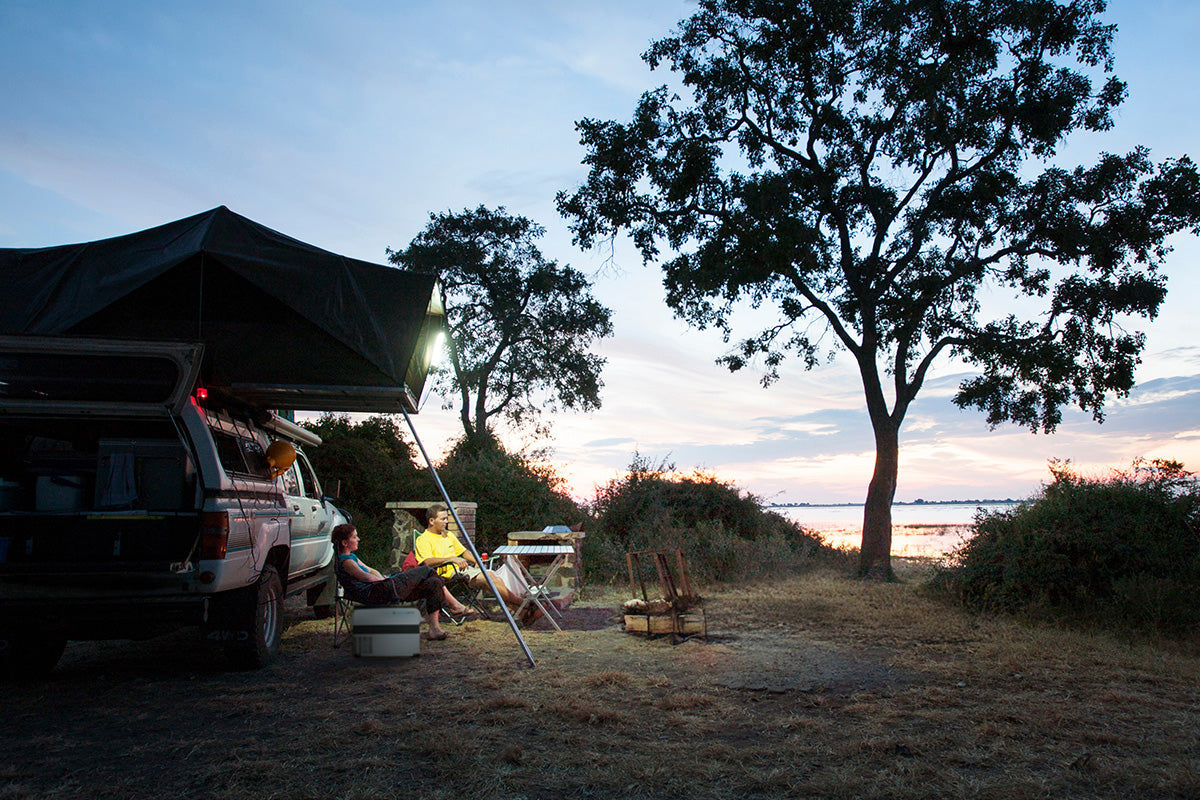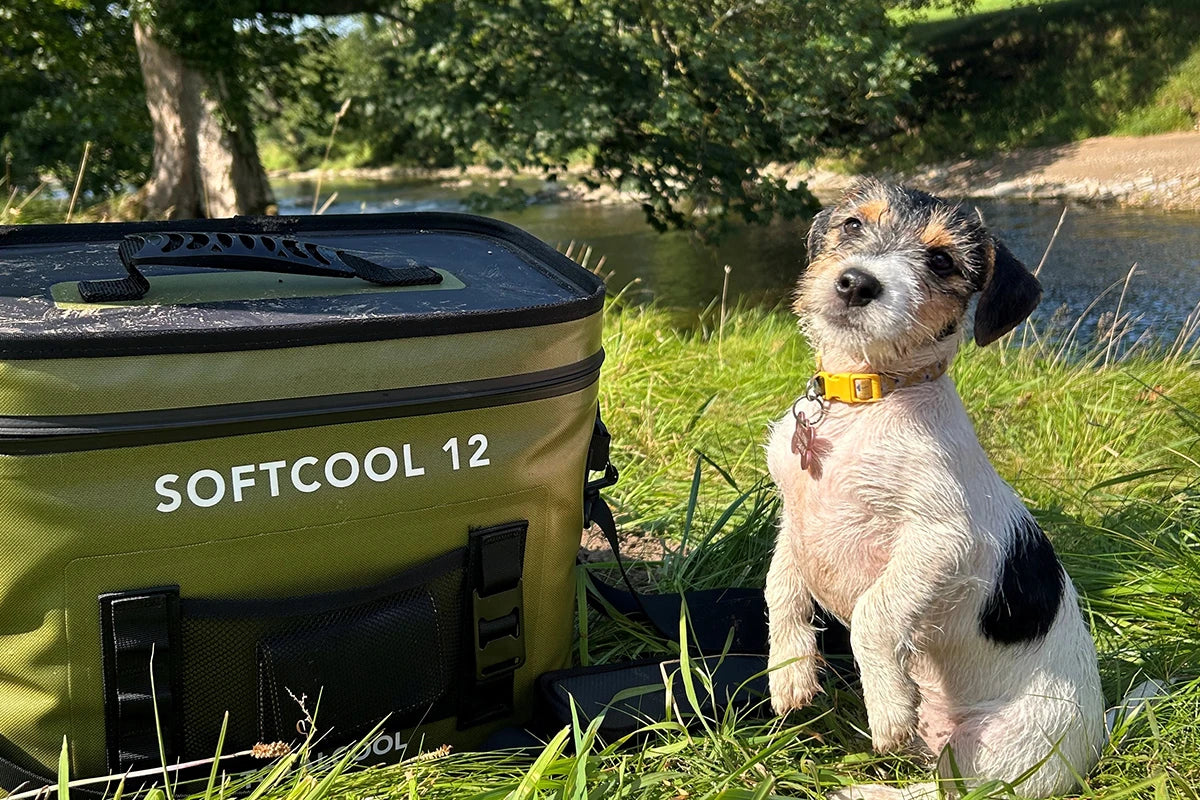Intro
Heating is essential for year-round travel, and the way you produce that heat can influence your budget for years to come. Choosing the right approach matters for comfort, safety, and long-term value.
The headline price of a fitted diesel heater rarely tells the full story: installation labour, extra parts, certification, downtime, and ongoing servicing all add up. Small costs appear over time through carbon cleaning, replacement glow plugs and filters, and the potential impact of bodywork cuts on resale value and warranties.
A portable diesel heater follows a different cost profile. There is no drilling or permanent modification, and a single unit can warm a campervan, caravan, awning, or tent. Maintenance stays simple, ownership remains flexible, and total spend over three years can be easier to control without sacrificing warmth or comfort.
The Real Price of a Fitted Diesel Heater
A fitted diesel heater rarely costs only the sticker price. The installed cost usually includes the unit, labour, ancillary parts, certification, and time off the road.
Typical cost components to account for
- Heater unit price bands by output rating
- Professional installation hours and workshop rates
- Ancillary parts such as ducting, brackets, exhaust, fuel pick-ups, wiring looms
- Compliance checks and sign-off where required
- Downtime cost while the vehicle is in the workshop
The installed price can approach or exceed the unit cost. That gap is where budgets get stretched.
Installation Costs Most Buyers Miss
Labour and small parts add up quickly. Good installers factor safety and neat routing, which takes time.
Line items that often get overlooked
- Cutting and sealing body panels, then treating exposed metal against corrosion
- Extra heat shielding near plastics, flooring, or under-seat areas
- Fuel system integration, grommets, clips, and fireproof sleeving
- Additional battery cabling, fusing, and distribution blocks
- Test runs and adjustments to avoid cold spots or fumes
Compliance and safety considerations
Plan for ventilation provisions, exhaust routing clear of doors and windows, and a quality CO alarm. Some insurers require disclosure of fuel-burning appliances. Non-disclosure can complicate claims.
Annual Maintenance and Parts You Should Budget For
Diesel heaters are reliable when maintained. They still need periodic attention.
Recurring items
- Routine servicing at set hour intervals
- Carbon build-up cleaning, more frequent with short cycling
- Replacement glow plugs, filters, gaskets, and fuel line sections
- Electrical health checks of connectors and grounds
- Occasional fan or pump replacements on high-hour units
Short runs at low output can increase soot. Budget for more frequent cleans when you mostly take quick winter hops.
How Vehicle Modifications Can Affect Resale and Warranty
Permanent changes can influence a future sale or claim.
Financial impacts to consider
- Visible cuts in panels or floor sections can reduce buyer confidence
- Poor sealing increases the risk of water ingress and corrosion
- Warranty questions where aftermarket work touches fuel or electrical systems
- Buyers sometimes discount vehicles with non-factory holes near structural areas
A tidy, documented install protects value. It still narrows your buyer pool to those who want that specific configuration.
The Cost of Inflexibility When Your Travel Style Changes
A fitted heater is tied to one vehicle and layout. That matters when life changes.
Hidden flexibility costs
- Moving to a new van usually means repeating the install from scratch
- No easy way to heat tents, roof tents, awnings, or guest spaces
- Paying twice when you maintain both a van and a caravan
- Reduced ability to lend or share heating with friends on group trips
When a Fitted Heater Still Makes Sense
A fixed system can be the right call for specific use cases.
Good fit scenarios
- Full-timers who winter in very cold climates and want fully integrated ducting
- Owners who never plan to change vehicles and value seamless in-cab controls
- Builds where interior aesthetics and near-silent operation are top priorities
If these describe your travel pattern, the premium for integration can be justified.
A Portable Alternative That Reduces Long-Term Spend
A portable diesel heater lives outside the living space and pushes warm air in through a short duct. The big savings come from zero installation labour, no permanent vehicle modifications, and one heater serving many scenarios.
Where portable units cut costs
- No drilling, sealing, rust protection, or trim removal
- One purchase heats a campervan, caravan, tent, roof tent, and awning
- Easy resale or repurposing when you change vehicles
- Simple maintenance with fast part swaps and clear access
- Lower risk of warranty or insurance complications
You still get thermostat control, timed runs, and high output for cold nights. You also keep your options open.
3-Year Cost Comparison: Weekend User vs Full-Timer
The figures below are examples to illustrate how totals stack up. They use a conservative fuel burn of 0.2 L per hour and a sample diesel price of £1.70 per litre. Adjust to your own usage and local prices.
Assumptions
- Weekend user: 12 weekends per year, 8 heating hours per weekend
- Full-timer: 200 days per year, 6 heating hours per day
- Fitted heater capex: unit £800, install £600, ancillaries and paperwork £150, downtime £100
- Portable heater capex: unit £400, ancillaries £80
-
Maintenance, 3 years
- Weekend, fitted: service £120 per year, carbon clean £40 per year equivalent, parts £40 per year
- Weekend, portable: service £40 per year, carbon clean £20 per year equivalent, parts £25 per year
- Full-timer, fitted: service £240 per year, carbon clean £80 per year, parts £60 per year
- Full-timer, portable: service £80 per year, carbon clean £40 per year, parts £40 per year
Fuel use over 3 years
- Weekend user: 57.6 litres, about £97.92 at £1.70 per litre
- Full-timer: 720 litres, about £1,224.00 at £1.70 per litre
Totals over 3 years
-
Weekend user
- Fitted: capex £1,650, maintenance £600, fuel £97.92
Total about £2,348 - Portable: capex £480, maintenance £255, fuel £97.92
Total about £833 - Illustrative saving with portable: about £1,515
- Fitted: capex £1,650, maintenance £600, fuel £97.92
-
Full-timer
- Fitted: capex £1,650, maintenance £1,140, fuel £1,224
Total about £4,014 - Portable: capex £480, maintenance £480, fuel £1,224
Total about £2,184 - Illustrative saving with portable: about £1,830
- Fitted: capex £1,650, maintenance £1,140, fuel £1,224
Notes: figures are indicative and exclude campsite hook-up fees, CO alarms, premium soundproofing, or any repairs from incorrect installation.
Fitted Heater Cost Checklist
Copy this list into your spreadsheet to build a total cost of ownership model.
One-time costs
- Heater unit price
- Installation labour hours and rate
- Ancillary parts, brackets, ducting, exhaust, fuel pick-up, wiring
- Panel cuts and rust treatment materials
- Compliance checks or certification
- Vehicle downtime value
Recurring costs
- Annual service
- Carbon clean interval and cost
- Replacement parts budget
- Battery health checks or upgrades
- Insurance disclosure or premium changes
- Unexpected repairs
Usage inputs
- Hours of heat per day
- Days per year
- Fuel burn rate in L per hour
- Local diesel price per litre
Resale and risk
- Potential value impact at sale
- Warranty implications
- Water ingress and corrosion monitoring
See also
For a broad decision guide, read our comparison article where we compare portable and fitted diesel heaters.
Conclusion
When you total up installation, maintenance, flexibility, and resale effects, a portable diesel heater can keep you warm while keeping long-term spending under control. It is a practical way to heat a campervan, caravan, tent, or roof tent without locking money into one vehicle.





Leave a comment
This site is protected by hCaptcha and the hCaptcha Privacy Policy and Terms of Service apply.